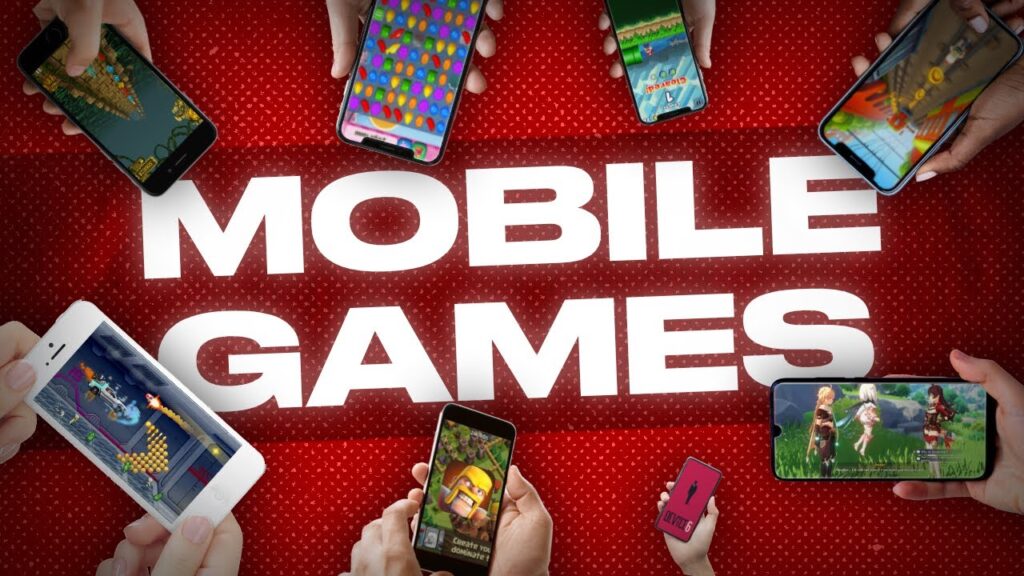
Mobile Gaming Market:
The market for mobile gaming has grown from a recreational activity to a multibillion-dollar industry in recent years. People everywhere are playing mobile games on a regular basis, from commuters in New York to teens in Tokyo, as cellphones become more widely available and powerful. Both the game industry and the way people consume entertainment in the digital age are changing as a result of this transformation.
A Global Surge in Popularity
The market for mobile gaming has grown rapidly. More than half of the gaming industry’s entire revenue, or over $100 billion, came from mobile gaming worldwide in 2023, according to Statista. This expansion is driven by multiple important factors:
Increased smartphone penetration
Wider internet accessibility
Freemium models allowing free play with in-app purchases
Casual gaming attracting non-traditional gamers
Whether it’s hyper-casual puzzle games or complex battle royales like PUBG Mobile and Call of Duty: Mobile, there’s something for everyone.
Key Markets Driving Growth
While mobile gaming is a global trend, certain regions have become dominant players in the industry:
1. Asia-Pacific (APAC)
The APAC region, particularly China, India, South Korea, and Japan, leads the global mobile gaming market. China alone contributes over 25% of the global mobile gaming revenue.
India has seen a huge spike in mobile gamers due to affordable data plans and budget smartphones.
South Korea and Japan have long been gaming powerhouses, now shifting attention to mobile-first strategies.
2. North America
The United States remains a significant market with a massive user base and strong in-app spending. Mobile games like Candy Crush, Roblox, and Clash of Clans continue to generate millions in revenue monthly.
3. Europe
In regions like the UK, Germany, and France, mobile gaming is on the rise, particularly among adults and women. This shift indicates a broadening demographic appeal of mobile games.
Trends Shaping the Mobile Gaming Market
The mobile gaming market is constantly evolving. Here are the most influential trends currently reshaping the landscape:
Cloud Gaming
With services like Xbox Cloud Gaming and NVIDIA GeForce NOW, gamers can now play console-quality games on mobile devices without needing high-end hardware.
Augmented Reality (AR)
Games like Pokémon GO showcased the power of AR. Developers are now investing heavily in immersive, location-based gaming experiences.
Blockchain & NFTs
The emergence of play-to-earn (P2E) games and blockchain-based economies is turning gaming into a side hustle for many. Titles like Axie Infinity have gained massive popularity globally.
Esports on Mobile
Mobile esports tournaments are drawing millions of viewers. Free Fire, Mobile Legends, and PUBG Mobile now host global championships with prize pools rivaling those of PC or console tournaments.
Hyper-Casual Gaming
Quick-to-play and easy-to-understand games dominate download charts. They cater to users looking for instant fun without long commitments.
Opportunities for Developers
The mobile gaming market presents a goldmine of opportunities for developers and startups:
Low entry barriers: Indie developers can create simple games and reach millions via Google Play and the App Store.
Global reach: Mobile apps can scale globally faster than PC or console games.
Monetization avenues: Ads, in-app purchases, and subscriptions allow multiple revenue models.

Challenges in the Mobile Gaming Market
While the growth is promising, developers and publishers face several challenges:
App store competition: With millions of games available, standing out is tough.
User retention: Keeping players engaged beyond the first few days is critical.
Ad fatigue: Overuse of ads can lead to negative reviews and uninstallations.
Data privacy concerns: As regulations tighten, compliance becomes increasingly complex.
The Future of Mobile Gaming
The mobile gaming market is poised to reach $140 billion by 2026 if current trends continue. The convergence of AI, 5G, metaverse integration, and cross-platform play will redefine the user experience even further.
Games will become more personalized, interactive, and accessible. Developers will need to prioritize user experience, data security, and community engagement to thrive in this dynamic ecosystem.
🔥 Related Posts

How AI is Changing Mobile Gaming: The Future of Smart Gaming

Stardew Valley Wiki: Your Ultimate Guide to the Valley in 2026

Best Offline Mobile Games to Play Without Internet

Modded Apps for Photography Enthusiasts – Capture Like a Pro

The Best Cross-Platform Mobile Games You Can Play on PC & Console
